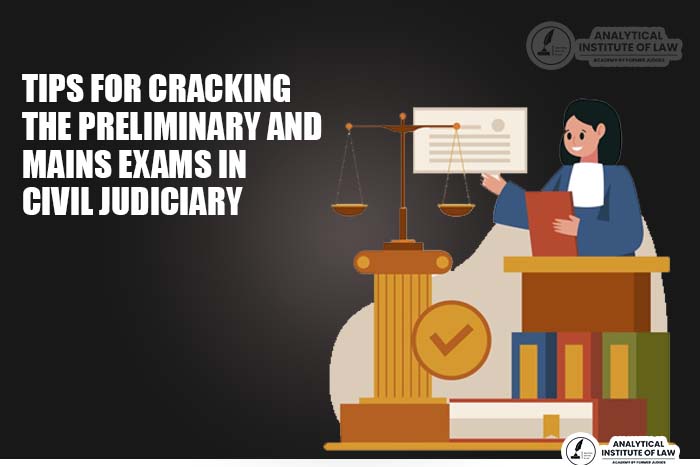Most law students would say that becoming a judge is their post-law objective if you were to ask them. But is passing the test simple? Exam preparation requires strategic work, and all exams are competitive. With hybrid programs that can be attended online or off, Ailaw Law Academy provides preparation for both civil and higher judiciary exams, enabling students to pursue their goals no matter where they are. We'll be sharing some exam-sailing advice on this blog.
TIPS FOR CRACKING THE PRELIMINARY AND MAINS EXAMS IN CIVIL JUDICIARY
1. Analyze your syllabus
Examine your syllabus as soon as you begin your preparation, paying particular attention to your state aim. Understanding the topics covered in the syllabus is essential. The extensive range of legal topics covered in the curriculum often leaves us perplexed when we first look at it. Ailaw offers a state-specific curriculum that is divided into two sections for judicial training. It indicates which subject and area from the syllabus has been tested in recent years, making it simpler to pass the entrance exam for the civil justice system or higher judiciary
2. Time management skills
Every preparation calls for effective time management. Preliminary and major tests in the judiciary require time to comprehend the law. Establish little daily objectives that are simple to accomplish, as this improves time management abilities. We schedule the weekly test for Mondays in order to encourage consistency in preparation and to assist students better manage their time and understand their performance. Schedule your study time, and it will help you stay on task throughout the day.
3. Answer writing
Answers are written on the Mains (written) exam. This marks the progression of the judicial preparation. It is challenging to write a thorough response in the allotted time and limited space on the most significant assignment of the semester. It's not where you have to fill out seven or eight sheets with answers. nonetheless, no more than 400 or 600 words. In the notes at the conclusion of the topic, Ailaw offers the answers to the primary and preliminary questions. Because practice makes perfect, you can practice these!
4. Practice is never ending process
We make use of our time to learn and comprehend the legislation. The exam point of view makes it insufficient. The student should administer the test in order to evaluate how well they did on it. Study materials are provided by Ailaw. These materials include a test booklet with 3,000 preliminary questions and 1,000 main questions for practice in specific subjects. Additionally, 10,000 tests are available on our app to allow you to further hone your conceptual understanding.
5. Prepare together
The pupil believes they have enough time to do their preliminary and final exams. It is untrue because practice is most important for the response writing exam, which is the main focus. The preliminary test consists of multiple-choice questions. It indicates that there is a strong possibility of the main exam. So let's get ready for the exam journey together. Online and offline hybrid mode classes are offered by Ailaw. They help the candidates stay consistent in their journey by preparing the students based on their stage
6. The foundation of the law - case laws
The judiciary can be learned about in ways other than through courts or judges. Case laws or seminal rulings such as Shreya Singhal v. Union of India, Justice K.S. Puttaswamy vs. Union of India, and Mohd. Ahmad Khan v. Shah Bano Begum have the power to completely alter society's outlook. The lists of case laws continue on forever, but don't worry—we'll make sure you obtain the case laws you need in order to ace the civil judiciary exam
7. Previous year questions (PYQs)
It aids in the student's comprehension of the exam format and provides insight into the modifications and enhancements made to the question format. It improves the exam's accuracy and speed. According to the exam, students may readily determine where they stand. Solving the questions from the prior year is crucial.




Leave a Comment